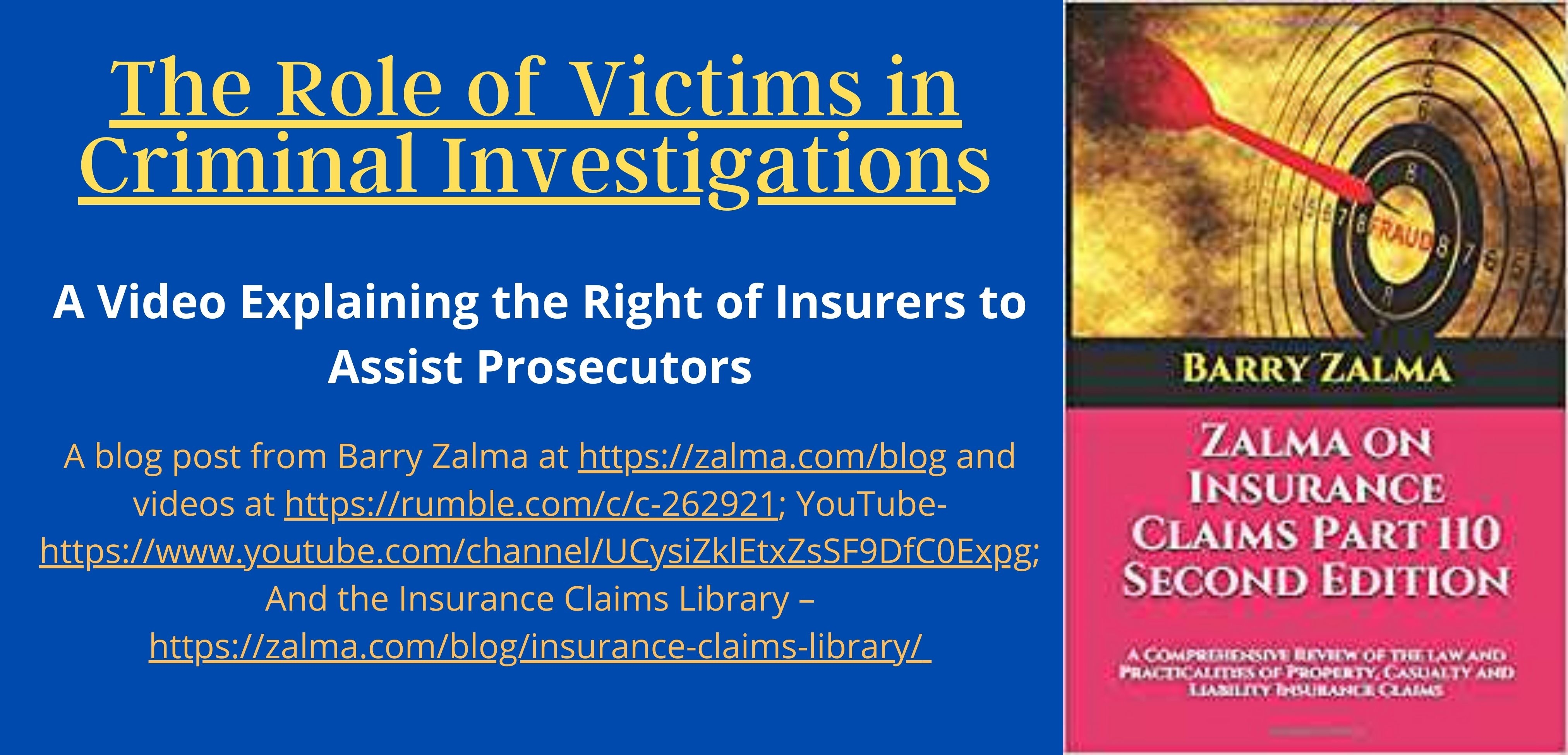-
News Feed
- EXPLORE
-
Pages
-
Groups
-
Events
-
Blogs
-
Marketplace
-
Offers
-
Jobs
-
Developers
The Role of Victims in Criminal Prosecution

A Video Explaining the Right of Insurers to Assist Prosecutors
Read the full article at https://www.linkedin.com/pulse/role-victims-criminal-investigations-barry-zalma-esq-cfe and see the full video at https://rumble.com/vjg1wh-the-role-of-victims-in-criminal-investigations.html and at https://youtu.be/aFXs3PNfmk4 and at https://zalma.com/blog plus more than 3800 posts.
Insurance fraud is a major component of white-collar crime. It is slowly becoming a more significant component of the law-enforcement agenda. The insurance industry plays a leading role in assisting prosecutors in the investigation and prosecution of insurance fraud. The industry has been compelled to do so by statutes enacted by most states. Insurers help prosecutors establish criminal cases involving health care providers, lawyers, bogus claimants, arsonists, and a vast array of participants in infinite number of schemes to defraud insurance companies and their customers.
Throughout the country, insurers routinely cooperate with law enforcement officials that are investigating insurance fraud by providing information, specialized expertise, and technical and administrative support for these complicated investigations. The recent federal health insurance fraud statute, and state statutes in various states, require cooperation between private insurers and law enforcement officials on fraud investigations.
A conflict exists whenever there is a reasonable possibility that the district attorney’s office may not exercise its discretionary function in an evenhanded manner. The conflict is disabling only if it is so grave as to render it unlikely that the defendant will receive fair treatment.
In the criminal justice system, the prosecutor bears responsibility for determining what crimes will be prosecuted. The legal system has traditionally allowed wide discretion to criminal prosecutors in the enforcement process. The Government retains broad discretion as to whom to prosecute.
Prosecutorial discretion is not unlimited. “Selectivity in the enforcement of criminal laws is … subject to constitutional constraints. The decision to prosecute may not be based upon an unjustifiable standard like religion, race or sexual orientation. Beyond these constitutional limitations, a trial judge “must accord a presumption of constitutionality to prosecutorial decisions and approach the inquiry with appropriate respect for the judgments exercised by officers of a coordinate branch of government
We are 100% funded for October.
Thanks to everyone who helped out. 🥰
Xephula monthly operating expenses for 2024 - Server: $143/month - Backup Software: $6/month - Object Storage: $6/month - SMTP Service: $10/month - Stripe Processing Fees: ~$10/month - Total: $175/month
- Art
- Causes
- Crafts
- Crime
- Dance
- Drinks
- Film
- Finance
- Fitness
- Food
- Games
- Gardening
- Health
- Home
- Literature
- Music
- Networking
- Paranormal
- Other
- Politics
- History
- News
- Party
- Science
- Religion
- Shopping
- Sports
- SyFy
- Politically Incorrect
- Philosophy
- Theater
- Technology
- Wellness



